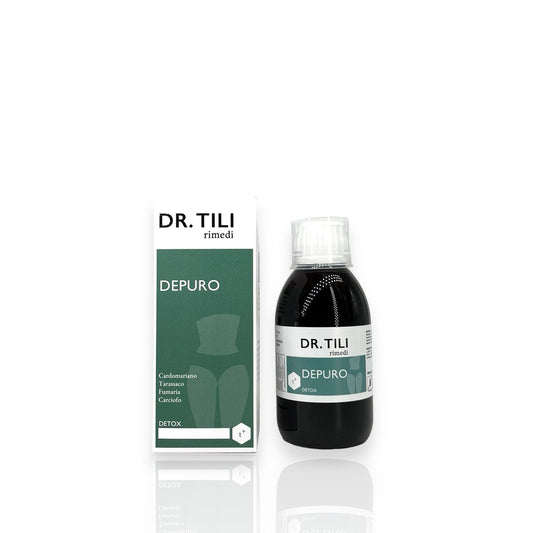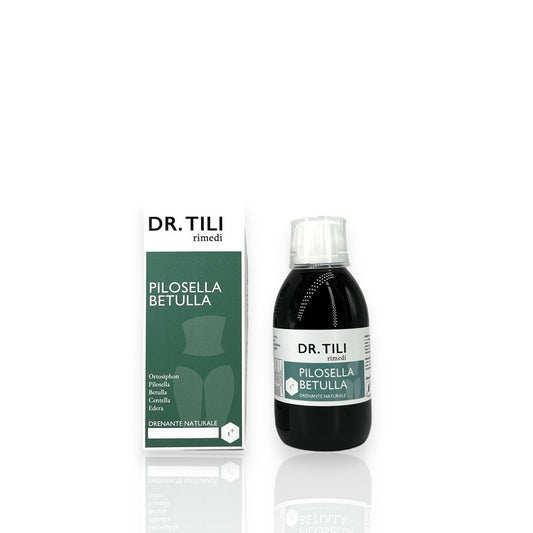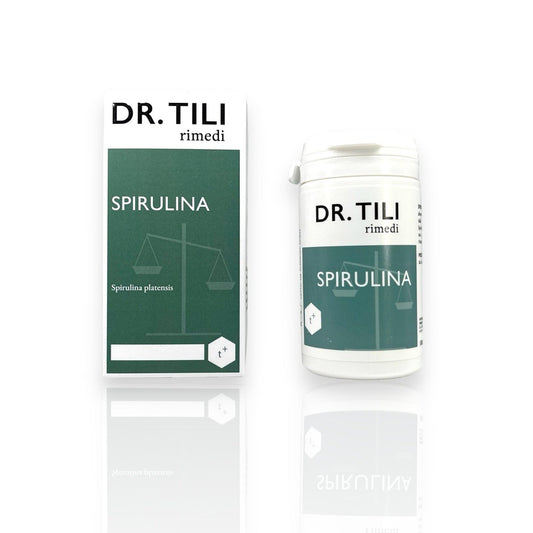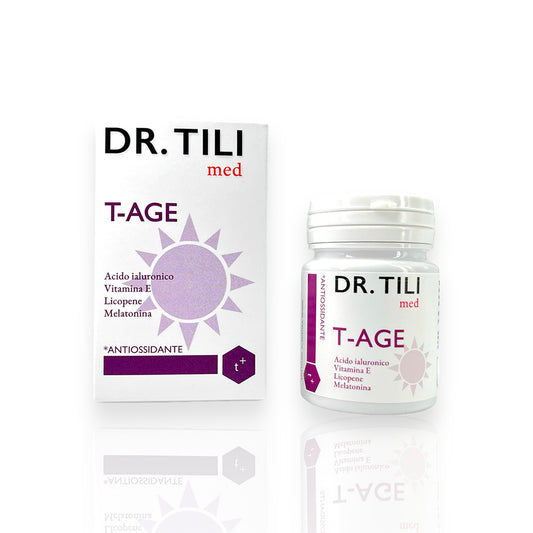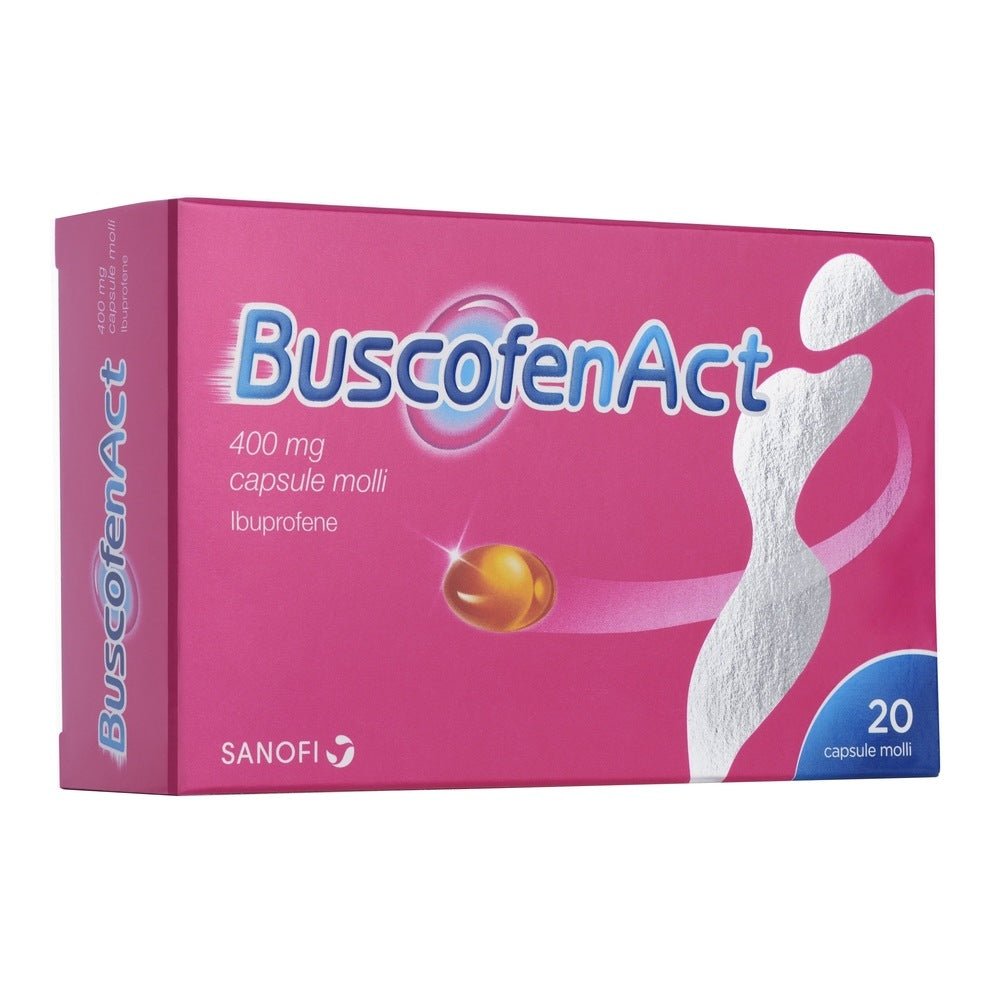SANOFI SpA
Buscofenact 400mg 20 soft capsules
Buscofenact 400mg 20 soft capsules

Pickup available at Farmacia Tili
Usually ready in 24 hours
PRODUCT NET WEIGHT
PRODUCT NET WEIGHT
EAN
EAN
041631033
MINSAN
MINSAN
041631033
Buscofenact 400mg 20 softgels is a medicine formulated for the short-term symptomatic treatment of mild to moderate pain, such as headache, toothache and menstrual pain, as well as fever and pain associated with the common cold. Each softgel contains 400 mg of ibuprofen , an active ingredient known for its anti-inflammatory and analgesic properties. This medicine is indicated for adults and adolescents with a body weight of more than 40 kg (aged 12 years and over). The softgels are designed for quick and easy oral intake, ensuring rapid relief from symptoms. Ibuprofen works by inhibiting the synthesis of prostaglandins, chemicals in the body that cause inflammation and pain. Buscofenact is an effective choice for those seeking quick and temporary relief from painful and feverish symptoms.
ACTIVE INGREDIENTS
Active ingredients contained in Buscofenact 400mg 20 soft capsules - What is the active ingredient of Buscofenact 400mg 20 soft capsules?
One soft capsule contains 400 mg ibuprofen. Excipients with known effect : Sorbitol 95.94 mg/capsule (see section 4.4). For the full list of excipients, see section 6.1.
EXCIPIENTS
Composition of Buscofenact 400mg 20 soft capsules - What does Buscofenact 400mg 20 soft capsules contain?
Capsule contents: Macrogol 600 Potassium hydroxide Purified water Capsule shell : Gelatin Liquid sorbitol Purified water Printing ink Ingredients of Opacode WB black NS-78-17821: Black iron oxide (E172) Propylene glycol (E1520) Hypromellose 6cP
DIRECTIONS
Therapeutic indications Buscofenact 400mg 20 soft capsules - Why is Buscofenact 400mg 20 soft capsules used? What is it used for?
Short-term symptomatic treatment of: - mild to moderate pain such as headache, toothache and period pain; - fever and pain associated with the common cold. BuscofenAct is indicated in adults and adolescents with a body weight of more than 40 kg (aged 12 years and over).
CONTRAINDICATIONS SIDE EFFECTS
Contraindications Buscofenact 400mg 20 soft capsules - When should Buscofenact 400mg 20 soft capsules not be used?
BuscofenAct soft capsules is contraindicated in case of: - hypersensitivity to ibuprofen or to any of the excipients listed in section 6.1; - history of hypersensitivity (e.g. bronchospasm, asthma, rhinitis, angioedema or urticaria) associated with the intake of acetylsalicylic acid or other nonsteroidal anti-inflammatory drugs (NSAIDs); - haematological disorders of unknown origin; - history of recurrent or active peptic ulcer/haemorrhage (two or more distinct episodes, with proven ulceration or bleeding); - history of gastrointestinal bleeding or perforation, related to previous therapy with NSAIDs; - cerebrovascular haemorrhage or other bleeding episodes; - severe heart failure (NYHA class IV) (see also section 4.4); - severe hepatic insufficiency or severe renal insufficiency (see also section 4.4); - patients in the third trimester of pregnancy (see section 4.6); - adolescents with body weight below 40 kg and children under 12 years of age; - patients with severe dehydration (due to vomiting, diarrhoea or insufficient fluid intake).
DOSAGE
Quantity and method of taking Buscofenact 400mg 20 soft capsules - How to take Buscofenact 400mg 20 soft capsules?
Dosage Adults and adolescents with body weight > 40 kg (aged 12 years and over): Initial dose of 400 mg ibuprofen. If necessary, an additional dose of 400 mg ibuprofen may be taken. The interval between doses should be based on the symptoms observed and the maximum recommended daily dose, and should not be less than 6 hours. Do not take more than 1200 mg ibuprofen in 24 hours. For short-term treatment only. Undesirable effects may be minimised by using the lowest effective dose for the shortest duration necessary to control symptoms (see section 4.4). If BuscofenAct soft capsules must be taken in adults for more than 3 days in case of fever or for more than 4 days for the treatment of pain or if symptoms worsen, the patient is advised to consult a doctor. It is recommended that people with gastric disorders take it on a full stomach. If taken shortly after eating, the onset of the effect of BuscofenAct may be delayed. If this occurs, do not take BuscofenAct more than recommended in section 4.2 (dosage) or until the correct dose interval has elapsed. Special patient populations Elderly No special dosage adjustments are required. Due to possible undesirable effects (see section 4.4), elderly patients should be carefully monitored. Renal impairment No special dosage adjustments are required in patients with mild or moderate renal impairment (for patients with severe renal impairment, see section 4.3). Hepatic impairment (see section 5.2) No special dosage adjustments are required in patients with mild or moderate liver impairment (for patients with severe liver dysfunction, see section 4.3). Paediatric population BuscofenAct is contraindicated in adolescents with a body weight below 40 kg and in children under 12 years of age due to the high content of active ingredient (see section 4.3). If the use of the medicinal product is necessary for more than 3 days in adolescents, or in case of worsening of symptoms, a doctor should be consulted. Method of administration For oral use. The soft capsules should not be chewed.
CONSERVATION
Storage Buscofenact 400mg 20 soft capsules - How to store Buscofenact 400mg 20 soft capsules?
This medicine does not require any special storage temperatures.
WARNINGS
Warnings Buscofenact 400mg 20 soft capsules - About Buscofenact 400mg 20 soft capsules it is important to know that:
Undesirable effects may be minimised by using the lowest effective dose for the shortest duration necessary to control symptoms (see sections below on gastrointestinal and cardiovascular risks). Caution is required in patients with certain clinical conditions, which may be exacerbated: - patients with systemic lupus erythematosus and various connective tissue diseases have an increased risk of developing aseptic meningitis (see section 4.8); - congenital disorder of porphyrin metabolism (e.g. acute intermittent porphyria); - gastrointestinal diseases and chronic inflammatory bowel diseases (ulcerative colitis, Crohn's disease) (see section 4.8); - hypertension and/or cardiac impairment as renal function may deteriorate (see sections 4.3 and 4.8); - renal impairment (see sections 4.3 and 4.8); - hepatic dysfunction (see sections 4.3 and 4.8); - immediately after major surgery; - in patients with allergic reactions to other substances, since there is an increased risk of hypersensitivity reactions also following the use of BuscofenAct; - in patients suffering from hay fever, nasal polyps or chronic obstructive airway diseases since there is an increased risk of allergic reactions. These reactions may present as asthma attacks (so-called analgesic asthma), Quincke's oedema or urticaria. Gastrointestinal effects The use of BuscofenAct soft capsules in combination with other NSAIDs, including selective cyclooxygenase-2 inhibitors, increases the risk of adverse reactions and should be avoided. Elderly Elderly subjects have a higher frequency of adverse reactions to NSAIDs, especially gastrointestinal bleeding and perforation, which may be fatal (see section 4.2). Gastrointestinal bleeding, ulceration or perforation Gastrointestinal bleeding, ulceration or perforation, sometimes fatal, has been reported with all NSAIDs at any time during treatment, with or without warning symptoms or a previous history of GI events. If GI bleeding or ulceration occurs in patients receiving ibuprofen, the treatment should be withdrawn. The risk of GI bleeding, ulceration or perforation is increased with higher NSAID doses, in patients with a history of ulcer, particularly if complicated with haemorrhage or perforation (see section 4.3), and in elderly patients. These patients should start treatment on the lowest dose available. Concomitant therapy with protective agents (e.g. misoprostol or proton pump inhibitors) should be considered for these patients, and also for patients receiving concomitant low dose aspirin or other drugs likely to increase gastrointestinal risk (see below and section 4.5). Patients with a history of gastrointestinal toxicity, particularly when elderly, should report any unusual abdominal symptoms (especially gastrointestinal bleeding) especially in the initial stages of treatment. Caution should be advised in patients receiving concomitant medications which could increase the risk of ulceration or bleeding, such as oral corticosteroids, anticoagulants such as warfarin, selective serotonin reuptake inhibitors or anti-platelet agents such as acetylsalicylic acid (see section 4.5). NSAIDs should be administered with caution to patients with a history of gastrointestinal disease (ulcerative colitis, Crohn's disease) as their condition may be exacerbated (see section 4.8). Severe skin reactions Serious skin reactions, some of them fatal, including exfoliative dermatitis, Stevens-Johnson syndrome and toxic epidermal necrolysis, have been reported very rarely in association with the use of NSAIDs (see section 4.8). Patients appear to be at highest risk for these reactions early in the course of therapy; in fact, in the majority of cases, the reaction occurs within the first month of treatment. Acute generalized exanthematous pustulosis (AGEP) has been reported in relation to medicinal products containing ibuprofen. Administration of BuscofenAct soft capsules should be suspended at the first appearance of skin rash, mucosal lesions or any other sign of hypersensitivity. Exceptionally, chickenpox may be the cause of serious skin infections and soft tissue complications. It is recommended not to use BuscofenAct soft capsules during chickenpox. Masking of symptoms of underlying infections BuscofenAct soft capsules may mask the symptoms of infection, which may delay initiation of adequate treatment and therefore worsen the outcome of the infection. This has been observed in community-acquired bacterial pneumonia and bacterial complications of chickenpox. When BuscofenAct soft capsules are administered for the relief of infection-related fever or pain, monitoring for infection is recommended. In non-hospital settings, the patient should seek medical advice if symptoms persist or worsen. Cardiovascular and cerebrovascular effects Caution is advised (discuss with your doctor or pharmacist) before initiating treatment in patients with a history of hypertension and/or heart failure, since fluid retention, hypertension and oedema have been reported in association with NSAID therapy. Clinical trials suggest that use of ibuprofen, particularly at high doses (2400 mg daily), may be associated with a small increased risk of arterial thrombotic events (for example myocardial infarction or stroke). Overall, epidemiological studies do not suggest that low doses of ibuprofen (e.g. ≤ 1200 mg daily) are associated with an increased risk of arterial thrombotic events. Patients with uncontrolled hypertension, congestive heart failure (NYHA II-III), established ischaemic heart disease, peripheral arterial disease, and/or cerebrovascular disease should only be treated with ibuprofen after careful consideration and high doses (2400 mg daily) should be avoided. Careful consideration should also be exercised before initiating long-term treatment in patients with risk factors for cardiovascular events (e.g. hypertension, hyperlipidaemia, diabetes mellitus, smoking), especially if high doses (2400 mg daily) of ibuprofen are required. Other warnings and precautions Severe acute hypersensitivity reactions (e.g. anaphylactic shock) have been observed very rarely. At the first signs of a hypersensitivity reaction following intake/administration of BuscofenAct soft capsules, therapy should be discontinued. The required medical measures should be carried out by experienced personnel. Ibuprofen, the active ingredient of BuscofenAct soft capsules, may temporarily inhibit platelet function (platelet aggregation). Therefore, patients with platelet disorders should be carefully monitored. In case of prolonged treatment with ibuprofen, liver and kidney parameters as well as the blood picture should be checked regularly. Prolonged use of any analgesic for headache may worsen it. If this situation occurs or is suspected, the doctor should be consulted and treatment should be discontinued. The diagnosis of medication-overuse headache (MOH) should be suspected in patients with frequent or daily headaches despite (or because of) the regular use of headache medications. In general, the habitual use of analgesics, particularly the combination of different analgesic active ingredients, may lead to permanent kidney damage with the risk of renal failure (analgesic nephropathy). This risk may be increased under physical exertion associated with salt loss and dehydration. Therefore, this should be avoided. In case of concomitant alcohol consumption during the use of NSAIDs, adverse events related to the active ingredient, especially those affecting the gastrointestinal tract or the central nervous system, may increase. Paediatric population There is a risk of impaired renal function in dehydrated adolescents. Sorbitol BuscofenAct contains 95.94 mg of sorbitol in each capsule. Patients with hereditary fructose intolerance, a rare genetic disease, should not take this medicine.
INTERACTIONS
Interactions Buscofenact 400mg 20 soft capsules - Which medicines or foods can modify the effect of Buscofenact 400mg 20 soft capsules?
| Concomitant use of ibuprofen with: | Possible effects: |
| Other NSAIDs, including salicylates | Concomitant administration of several NSAIDs may increase the risk of gastrointestinal bleeding and ulcers due to a synergistic effect. Therefore, concomitant use of ibuprofen with other NSAIDs should be avoided (see section 4.4). |
| Digoxin | Concomitant use of BuscofenAct soft capsules with drugs containing digoxin may increase serum digoxin levels. Usually, if digoxin is used correctly (for a maximum of 4 days) it is not necessary to monitor serum digoxin levels. |
| Corticosteroids | Corticosteroids may increase the risk of adverse reactions, particularly of the gastrointestinal tract (gastrointestinal bleeding or ulceration) (see section 4.4). |
| Antiplatelet agents | Increased risk of gastrointestinal bleeding (see section 4.4). |
| Acetylsalicylic acid | Concomitant administration of ibuprofen and acetylsalicylic acid is generally not recommended due to the potential for increased adverse effects. Experimental data suggest that ibuprofen may competitively inhibit the effect of low-dose acetylsalicylic acid on platelet aggregation when the two drugs are administered concomitantly. Although there are uncertainties regarding the extrapolation of these data to the clinical situation, the possibility that regular, long-term use of ibuprofen may reduce the cardioprotective effect of low-dose acetylsalicylic acid cannot be excluded. No clinically relevant effect is considered likely following occasional use of ibuprofen (see section 5.1). |
| Anticoagulants | NSAIDs may increase the effects of anticoagulants, such as warfarin (see section 4.4). |
| Phenytoin | Concomitant use of BuscofenAct and phenytoin preparations may increase serum phenytoin levels. Usually, if used correctly (for a maximum of 4 days) it is not necessary to monitor serum phenytoin levels. |
| Selective serotonin reuptake inhibitors (SSRIs) | Increased risk of gastrointestinal bleeding (see section 4.4). |
| Lithium | Concomitant use of BuscofenAct with lithium preparations may increase serum lithium levels. Usually, if used correctly (for a maximum of 4 days) it is not necessary to monitor serum lithium levels. |
| Probenecid and sulfinpyrazone | Drugs containing probenecid and sulfinpyrazone may delay the elimination of ibuprofen. |
| Diuretics, ACE inhibitors, beta-blockers and angiotensin II antagonists | NSAIDs may reduce the effect of diuretics and other antihypertensive drugs. In some patients with compromised renal function (especially dehydrated patients or elderly patients with compromised renal function) the co-administration of an ACE inhibitor, a beta-blocker or angiotensin II antagonists and agents that inhibit cyclo-oxygenase may result in further deterioration of renal function, including possible acute renal failure, which is usually reversible. Therefore, these combinations should be administered with caution, especially in elderly patients. Patients should be adequately hydrated and consideration should be given to monitoring renal function at the start of concomitant therapy and periodically thereafter. |
| Potassium-sparing diuretics | Concomitant administration of BuscofenAct and potassium-sparing diuretics may lead to hyperkalemia. |
| Methotrexate | BuscofenAct administered within 24 hours before or after taking methotrexate may increase its concentrations and therefore its toxicity. |
| Cyclosporin | The risk of renal damage induced by ciclosporin may be increased by concomitant use of some NSAIDs. This effect cannot be excluded in case of concomitant intake of ciclosporin and ibuprofen. |
| Tacrolimus | The risk of nephrotoxicity increases with concomitant administration of ibuprofen and tacrolimus. |
| Zidovudine | When ibuprofen and zidovudine are administered concomitantly, there is evidence of an increased risk of haemarthroses and haematomas in HIV-positive haemophiliacs. |
| Sulfonylureas | Clinical studies have shown that there are interactions between nonsteroidal anti-inflammatory drugs and antidiabetic drugs (sulfonylureas). Although no interactions between ibuprofen and sulfonylureas have been described so far, in case of concomitant use of these two drugs it is advisable to monitor blood sugar levels. |
| Quinolone antibiotics | Animal studies indicate that NSAIDs may increase the risk of seizures associated with quinolone antibiotics. Patients taking NSAIDs and quinolones may be at increased risk of developing seizures. |
| CYP2C9 inhibitors | Concomitant administration of ibuprofen and CYP2C9 inhibitors may increase the exposure to ibuprofen (CYP2C9 substrate). In a study with voriconazole and fluconazole (CYP2C9 inhibitors), an increased exposure to S(+)-ibuprofen by approximately 80% to 100% was observed. Consideration should be given to reducing the ibuprofen dose when strong CYP2C9 inhibitors are co-administered, particularly when high doses of ibuprofen are administered with voriconazole and fluconazole. |
| Mifepristone | NSAIDs should not be used for 8-12 days after mifepristone administration as NSAIDs may reduce the effect of mifepristone. |
SIDE EFFECTS
Like all medicines, Buscofenact 400mg 20 soft capsules can cause side effects - What are the side effects of Buscofenact 400mg 20 soft capsules?
The list of undesirable effects reported below refers to all undesirable effects that have been reported during treatment with ibuprofen, including those observed during long-term and high-dose treatment in patients with rheumatic diseases. The reported frequencies, which occur with an incidence greater than very rare cases, refer to the short-term use of daily doses of up to a maximum of 1200 mg of ibuprofen for the oral dosage form and a maximum of 1800 mg for suppositories. It should be taken into account that the following undesirable effects are essentially dose-dependent and vary from individual to individual. The most commonly observed undesirable events are gastrointestinal in nature. Peptic ulcer, perforation or gastrointestinal haemorrhage, even with fatal outcome, may occur, especially in the elderly (see section 4.4). Nausea, vomiting, diarrhoea, flatulence, constipation, dyspepsia, abdominal pain, melaena, haematemesis, ulcerative stomatitis, worsening of colitis and Crohn's disease have been reported following administration (see section 4.4). Gastritis has been observed less frequently. The risk of gastrointestinal bleeding depends on the dose and duration of treatment. Oedema, hypertension and cardiac failure have been reported in association with NSAID treatment. Clinical trials suggest that use of ibuprofen, particularly at high doses (2400 mg daily), may be associated with a small increased risk of arterial thrombotic events (for example myocardial infarction or stroke) (see section 4.4). Patients should be advised to stop taking BuscofenAct immediately and to consult their doctor if a serious adverse reaction occurs. Adverse reactions are listed below by system organ class and frequency, using the following categories: Very common (≥1/10) Common (≥1/100, <1/10) Uncommon (≥1/1000, <1/100) Rare (≥1/10,000, <1/1000) Very rare (<1/10,000) Not known (cannot be estimated from the available data)
| Infections and infestations | Very rare | In association with the use of nonsteroidal anti-inflammatory drugs, worsening of infectious inflammation (e.g. development of necrotizing fasciitis) has been observed. This is probably associated with the mechanism of action of nonsteroidal anti-inflammatory drugs. Symptoms of aseptic meningitis with stiff neck, headache, nausea, vomiting, fever or blurred consciousness have been observed during treatment with ibuprofen. Patients with autoimmune diseases (SLE, mixed connective tissue disease) appear to be predisposed. |
| Pathologies of the haemolymphopoietic system | Very rare | Hematopoietic disorders (anemia, leukopenia, thrombocytopenia, pancytopenia, agranulocytosis). The first signs may be: fever, sore throat, superficial sores in the mouth, flu-like symptoms, severe tiredness, nosebleeds and skin bleeding. In long-term therapy, blood counts should be monitored regularly. |
| Immune system disorders | Uncommon | Hypersensitivity reactions with skin rashes, itching, asthma attacks (with possible drop in blood pressure). |
| Very rare | Severe generalized hypersensitivity reactions, signs of which may include facial edema, swelling of the tongue, swelling of the larynx with constriction of the airways, respiratory distress, tachycardia, drop in blood pressure, up to life-threatening shock. If any of these symptoms occur, and this can happen even on the first use, immediate medical attention is required. | |
| Psychiatric disorders | Very rare | Psychotic reactions, depression. |
| Nervous system disorders | Uncommon | Central nervous system disorders, such as headache, dizziness, insomnia, agitation, irritability or tiredness. |
| Eye pathologies | Uncommon | Visual disturbances. |
| Ear and labyrinth pathologies | Rare | Tinnitus. |
| Heart disease | Very rare | Palpitations, heart failure, myocardial infarction. |
| Vascular pathologies | Very rare | Arterial hypertension, vasculitis. |
| Gastrointestinal disorders | Common | Gastrointestinal disorders, such as heartburn, abdominal pain, nausea, dyspepsia, vomiting, flatulence, diarrhea, constipation, slight gastrointestinal blood loss which in exceptional cases leads to anemia. |
| Uncommon | Gastrointestinal ulcer with potential for haemorrhage and perforation. Ulcerative stomatitis, worsening of colitis and Crohn's disease (see section 4.4), gastritis. | |
| Very rare | Esophagitis, pancreatitis, diaphragmatic intestinal stenosis formation. If severe pain in the upper abdomen is felt or if melena or hematemesis occurs, it is recommended to inform the doctor immediately and stop taking the medicine. | |
| Hepatobiliary pathologies | Very rare | Liver dysfunction, liver damage, especially in case of prolonged therapy, liver failure, acute hepatitis. |
| Skin and subcutaneous tissue disorders | Uncommon | Various skin rashes. |
| Very rare | Bullous reactions such as Stevens-Johnson syndrome and toxic epidermal necrolysis (Lyell's syndrome), alopecia. In exceptional cases, serious skin and soft tissue infections may occur during chickenpox infection (see also "Infections and infestations"). | |
| Not known | Acute generalized exanthematous pustulosis (AGEP). Drug reaction with eosinophilia and systemic symptoms (DRESS syndrome). Photosensitivity reactions | |
| Kidney and urinary disorders | Rare | Rarely, damage to the kidney tissue (papillary necrosis) and high concentrations of uric acid in the blood may also be observed. |
| Very rare | Formation of edema, especially in patients with arterial hypertension or renal insufficiency, nephrotic syndrome, interstitial nephritis, which may be accompanied by acute renal failure. Renal function should be monitored regularly. |
If necessary, patients should be adequately informed to stop treatment with BuscofenAct and consult a doctor immediately if any of the following conditions occur: - severe gastro-intestinal disturbances, heartburn or abdominal pain; - haematemesis; - melaena or blood in the urine; - skin reactions, such as itchy rashes; - respiratory distress and/or swelling of the face or larynx; - fatigue associated with loss of appetite; - sore throat, associated with aphthous ulcers, fatigue and fever; - severe nosebleeds and skin bleeding; - abnormal tiredness associated with reduced urine output; - swelling of the feet or legs; - chest pain; - visual disturbances. Reporting of suspected adverse reactions Reporting suspected adverse reactions that occur after authorisation of the medicinal product is important. It allows continued monitoring of the benefit/risk balance of the medicinal product. Healthcare professionals are asked to report any suspected adverse reactions via the national reporting system at https://www.aifa.gov.it/content/segnalazioni-reazioni-avverse.
OVERDOSE
Buscofenact 400mg 20 soft capsules Overdose - What are the risks of Buscofenact 400mg 20 soft capsules in case of overdose?
Symptoms in case of overdose Symptoms of overdose may manifest themselves with central nervous system symptoms such as headache, dizziness, light-headedness and loss of consciousness (myoclonic convulsions even in children), abdominal pain, nausea, vomiting, gastrointestinal bleeding and liver and kidney dysfunction, hypotension, respiratory depression and cyanosis. In cases of severe poisoning, metabolic acidosis may occur. Therapeutic measures in case of overdose There is no specific antidote. If after one hour of ingestion, the patient has potentially toxic levels of the drug, resort to oral administration of activated charcoal.
PREGNANCY AND BREASTFEEDING
If you are pregnant or breast-feeding, think you may be pregnant or are planning to have a baby, ask your doctor for advice before taking Buscofenact 400mg 20 soft capsules.
Pregnancy Inhibition of prostaglandin synthesis may adversely affect the pregnancy and/or the embryo/foetal development. Results of epidemiological studies suggest an increased risk of miscarriage, cardiac malformations and gastroschisis after use of a prostaglandin synthesis inhibitor in early pregnancy. The absolute risk for cardiovascular malformations increased from less than 1%, up to approximately 1.5%. The risk is believed to increase with dose and duration of therapy. In animals, administration of a prostaglandin synthesis inhibitor resulted in increased pre- and post-implantation loss and embryo-foetal mortality. In addition, an increased incidence of malformations, including cardiovascular, has been reported in animals treated with a prostaglandin synthesis inhibitor during the organogenesis period. During the first and second trimester of pregnancy, ibuprofen should be administered only if clearly necessary. If ibuprofen is used in women attempting to conceive or during the first and second trimester of pregnancy, the dose should be kept as low and duration of treatment as short as possible. During the third trimester of pregnancy, all prostaglandin synthesis inhibitors may expose the fetus to the risk of: - cardiopulmonary toxicity (with premature closure of the ductus arteriosus and pulmonary hypertension); - renal dysfunction, which may progress to renal failure with oligo-hydroamnios. At the end of pregnancy, the mother and the neonate are at: - possible prolongation of bleeding time, an anti-aggregating effect which may occur even at very low doses; - inhibition of uterine contractions which may result in a delay or prolongation of labor at delivery. Consequently, the administration of ibuprofen is contraindicated during the third trimester of pregnancy. Breastfeeding Ibuprofen and its metabolites may pass into breast milk in low concentrations. To date, no deleterious effects on nursing infants are known. Therefore, for short-term treatment of pain and fever at the recommended dose, it should not generally be necessary to stop breastfeeding. Fertility There is some evidence that drugs which inhibit cyclooxygenase/prostaglandin synthesis may impair female fertility by affecting ovulation. Once treatment with ibuprofen has been stopped, the effect is reversible.
DRIVING AND USE OF MACHINERY
Taking Buscofenact 400mg 20 soft capsules before driving or using machines - Does Buscofenact 400mg 20 soft capsules affect driving or using machines?
Since the intake of BuscofenAct at the highest dosage may cause undesirable effects on the central nervous system, such as tiredness and dizziness, in isolated cases the ability to react promptly, the ability to drive and to use machines may be impaired. This applies especially if the use of BuscofenAct is associated with alcohol consumption.





